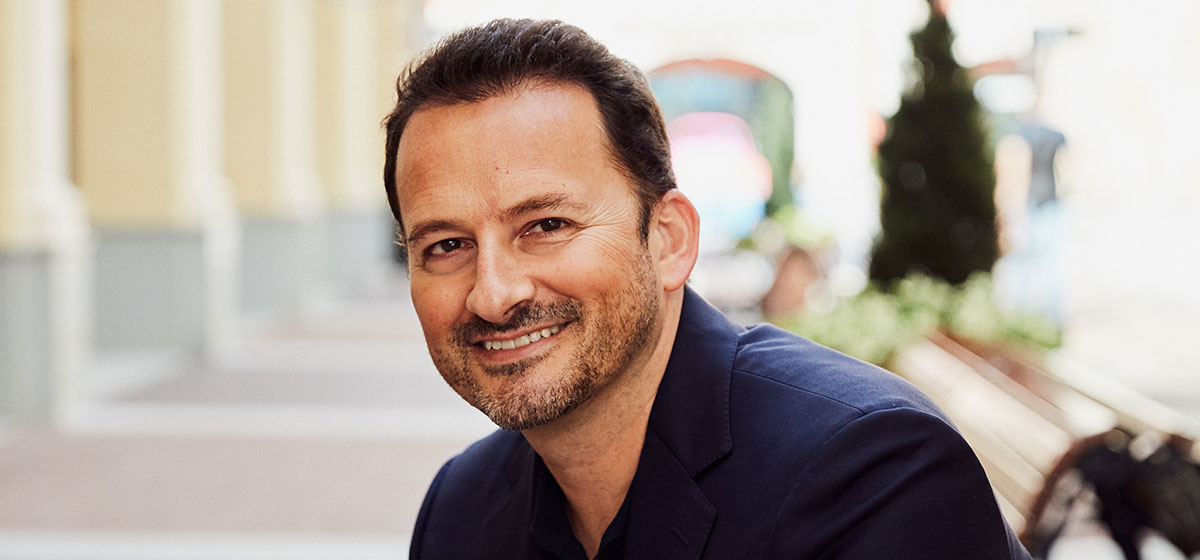By Antoni Gascon
We are experiencing the most challenging times ever for retailers, and probably the worst nightmares for the retail real estate industry as well. “Dobroe utro Antoni”, said Dmitry over the phone. His voice did not sound happy at all. That day I was working from home, in Moscow. “It is confirmed. We are closing the outlet villages on Friday”, Dmitry said in an unusual sad voice. That was the beginning of our own “nightmare”. These were the last days of March 2020.
On the one side, you would understand that it was the right thing to do, as the spread of Covid-19 was evolving extremely fast all over the world. But on the other side, you could not help but feel sad. This was the first time ever that we had to close our Russian outlet villages for an indefinite period of time. After sadness came anxiety and uncertainty. This was the start of almost daily zoom meetings, where we would discuss how we should interact with our tenants, how we should approach the sensible topic of rent collection and, most importantly, how we would keep our people safe through this pandemic.
At the same time, my own business (I am an investor in two shoe brands) was also suffering from the pandemic. Only a few weeks earlier our shop in Madrid had to close and our staff was asked to stay at home and keep themselves safe. The multi-brand store clients were not willing to commit to buying the new collection. Everything seemed to be on “stop” mode. In a way, that period felt like a constant double suffering, with a helping of double sadness and a double dose of anxiety.
No one could have ever predicted that one day all the retail brands in the world would have been forced to close their stores, worldwide. Doors closed. No cash flow. No direct physical interaction with clients. Low, or in most cases, no savings. Total uncertainty and perplexity about how to pay salaries, rents, stock, mortgages, credits. What to do with the stock? How to plan for the future? What to produce? What to design? How unpredictable the nearest future had become.
Retailers and landlords as partners
Retailers do not save money. They reinvest it to further grow their businesses; new stores, digital platforms, innovation, marketing, reconstruction of new store designs–you name it. That’s what retailers do. So, what to do when there’s no cash flow? Despite all this, both, landlords and retailers worked hard and determined in order to be ready to get back to business whenever it would be possible.
As it always happens, retailers quickly used their working capability, their imaginative methods, their innovation, their extremely valuable thinking-outside-the-box mentality and their never-stopping creativity, in order to be prepared and ready for business. At the same time, landlords adapted their properties according to local restrictions, reinforcing H&S and security measures to the new reality. More than ever, it was the time for both sides to maintain a strong partnership.
We understood that it was the time to face the dry spell of our businesses in the most creative and intelligent way, with a critical motto: “better with each other than against each other”. The challenge in 2021 is to get back to business at full speed, understanding that unemployment has gone up considerably in some countries, that the power spend of our customers might have suffered and that, disappointingly but not surprisingly, too many governments in this world do not seem to have control over the pandemic situation. In many cases, these poorly managed governments are not even willing to listen to landlords and retailers when it comes to determining their often useless and improvised restrictions, which directly affect the day-to-day business of shopping centers and retailers.
In some cities we have witnessed bizarre situations of extremely crowded public transport systems, while shopping centers remain closed. Shopping centers which have already proved to be very efficient when it comes to implementing pandemic regulations. Basically, we live in a world where efficient people look at how useless people make bad decisions, which ultimately affect people’s lives as well as the health of our businesses.
Something that could be very relevant to the retail industry right now is the evolution of people’s behaviors. What to buy and how to shop? People’s mentality might have recently evolved into what I like to call the 3Cs: cautious, conscientious, and critical shopping.
What do people really need to buy now for their day-to-day life?
Some people might have gone through an internal process of moving into a more sustainable life, considering even renting clothes, bags, and accessories every month, rather than buying them and filling their homes with things that they do not use that often. These sorts of platforms already exist, and they could potentially grow in the upcoming years. A more conscientious way of shopping is definitely here to stay.
New interesting brand’s join ventures
In 2020 e-commerce has experienced a total boom due to the Covid-19 pandemic. Not only well-known big platforms, marketplaces, and home food-delivery services have boosted their sales, but small entrepreneurs and local businesses had to go online in order to survive. Thanks to digital marketing strategies and social media channels they have learned a new way of making business. My opinion is that this will remain, it will grow and become a new reality as an additional business channel for these small retailers and entrepreneurs.
Brick and mortar, particularly street retail more than shopping centers, will struggle and in many cases might suffer in 2021. Brands are closing non-profitable stores and, therefore, street retail rents are going down in many cities. Professionally and well-managed shopping centers which can deliver footfall to its tenants will remain the first options for brands in terms of driving their business. This means that these landlords can maintain good levels of rental rates. Outlet villages are definitely very well positioned when it comes to bringing customers to their doors. Permanent discounts, a good brand mix, and a pleasant shopping environment are a perfect combination. Small retailers and local entrepreneurs learned how to survive and build their online businesses during the pandemic in the same way. Now they should also have the capability to innovate, as well as experience and discover how their physical stores should be re-invented in order to be attractive and profitable again.
We are going to start seeing new interesting store concepts or brand’s join ventures that we have not seen before. If the virtual online world, which is hidden behind a smartphone and a computer screen, is already doing it, why shouldn’t the real brick and mortar world do it as well? I am sure it will! As it happened in 2020, the present and future must be built together as partners–retailers and landlords understanding and respecting each other.
“Dmitry, priviet. How was footfall yesterday in our outlet villages?”














